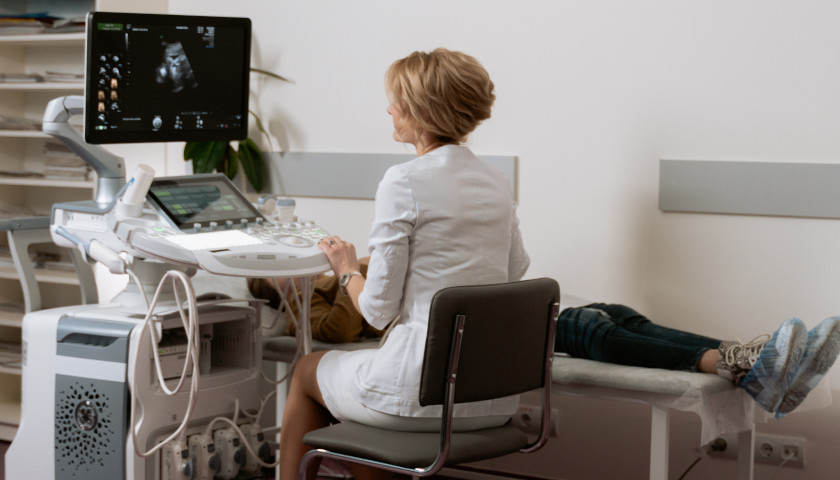Pro-lifers who marched on Ohio State Capitol Square in Columbus on Wednesday had some cause for celebration in light of the June Dobbs decision by the U.S. Supreme Court. But marchers also had much to lament, including an increase in the number of abortions performed in the Buckeye State.
According to the Ohio Department of Health’s recent report titled “Induced Abortions in Ohio, 2021,” deliberate killing of unborn children via surgery or medication rose 7 percent from 2020 to the following year. In total, 21,813 pregnancies were so terminated in the state in 2021, 95 percent of those terminations obtained by women who reside in Ohio.
Women in their 20s constituted the largest age demographic undergoing abortions at 59.2 percent. Nearly 30 percent of women who had their pregnancies terminated were in their 30s. Fewer than 3 percent were 40 or older and fewer than 9 percent were younger than 20.
Lack of a spouse characterized the vast majority of abortion recipients, with just over one-tenth of them being married. Women who were never married made up 82.8 percent of those obtaining abortions while 4.3 percent were divorced, 2.5 percent were separated and 0.3 percent were widowed.
State statistics also show a racial disparity in the incidence of abortion. While just over 14 percent of Ohio’s total population claim at least partial black ethnicity, nearly half of Ohioans who underwent abortions were black. Slightly under 43 percent were white, with small percentages being Asian, multiracial or American Indian.
The report further states that 61.2 percent of abortions took place after the fetus completed under nine weeks of gestation. Slightly over one-fourth of terminations happened between 9 and 12 weeks and slightly over one-tenth occurred when the unborn child had been developing between 13 and 18 weeks. About 2 percent of abortions were performed after 19 weeks.
A longstanding provision of the Ohio Revised Code largely prohibits abortions from being performed after 20 weeks of gestation. In 2019, Governor Mike DeWine (R) signed the Heartbeat Act to forbid aborting fetuses whose heartbeats can be detected, something that is usually the case after about six weeks into a pregnancy. The new restriction only went into effect after the Supreme Court overturned the 1973 Roe v. Wade decision this year, but Hamilton County Court of Common Pleas Judge Christian Jenkins (D) last month froze the law’s application through October 12.
The county court will conduct a hearing on a possible preliminary injunction on October 7. Abortion advocates have vowed to fight to kill the Heartbeat Act and have underscored their cause in urging Ohioans to back Democrats for the state supreme court in this November’s elections. Democratic gubernatorial candidate and former Dayton Mayor Nan Whaley has also championed abortion ardently in her campaign against DeWine’s re-election.
Meanwhile, pro-lifers hope continued Republican control of the state’s three governmental branches will enable them to proscribe terminating pregnancies at any point in gestation under nearly all circumstances. State Representative Jean Schmidt (R-Loveland) introduced a bill to that effect. While her Human Life Protection Act received two Government Oversight Committee hearings this spring, it has not yet received a vote.
Speakers at Wednesday’s march voiced optimism that Schmidt’s measure will pass in the near future.
“We need to pass legislation this year to end all abortion in Ohio,” Peter Range, executive director at Ohio Right to Life, told marchers. “That’s why Ohio Right to Life is working on the Human Life Protection Act and, make no mistake, we will get it done … . Our collective mission here today is to ensure that every pre-born child gets to fulfill their God-given mission and purpose … and we will not stop until they do.”
– – –
Bradley Vasoli is managing editor of The Ohio Star. Follow Brad on Twitter at @BVasoli. Email tips to [email protected].





